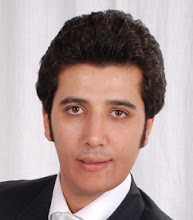Results of New Surveys - 2008.10.21

While media outlets close to the administration have been attempting in recent weeks to exaggerate Mahmoud Ahmadinejad’s popularity to be greater than ever before, the latest survey conducted by the Islamic Republic Majlis Strategic Research Center demonstrates that Iran’s president is not only suffering from very low popularity and approval ratings, but also many of the participants in the survey regard his administration as a failure.
Alborz news website reported yesterday that, according to a survey conducted by the Majlis Strategic Resarch Center, Mahmoud Ahmadinejad is suffering from his lowest popularity ratings since being elected president in 2005.
This website, which is affiliated with the right-wing faction, announced: “According to another survey held jointly by the Ministry of Intelligence and the Islamic Republic of Iran Broadcasting, 70 percent of the Iranian population are willing to vote for Seyyed Mohammad Khatami if he runs in the upcoming presidential election while only 13 percent of the population are willing for vote for Ahmadinejad again.
The Alborz website did not explain how it accessed survey results. Nevertheless, the website “triboon” alluded to the report, noting, “The survey was carried out in Tehran and large cities showing that that Iranian president is suffering from extremely low popularity rates among Iranians residing in these cities. According to survey results, 64 percent of respondents to the question about how successful the Ahmadinejad Administration has been rated the ninth administration’s performance below average. More than 50 percent of respondents rated the administration as “unsuccessful” or “highly unsuccessful.”
Similarly, the news website Parsineh wrote regarding the Majlis Strategic Research Center’s survey result: “In another part of this survey 78 percent of respondents described the seventh Majlis’s supervision on the administration as ‘weal’ or ‘very weak.’ Meanwhile, 83 percent of respondents to the survey responded negatively to whether they would vote again for Mahmoud Ahmadinejad and announced that they would not vote again for the current president of the Islamic Republic.”
More than 40 thousand people from various social, economic and educational backgrounds ranging from pre-diploma to doctoral degrees participated in this survey.







